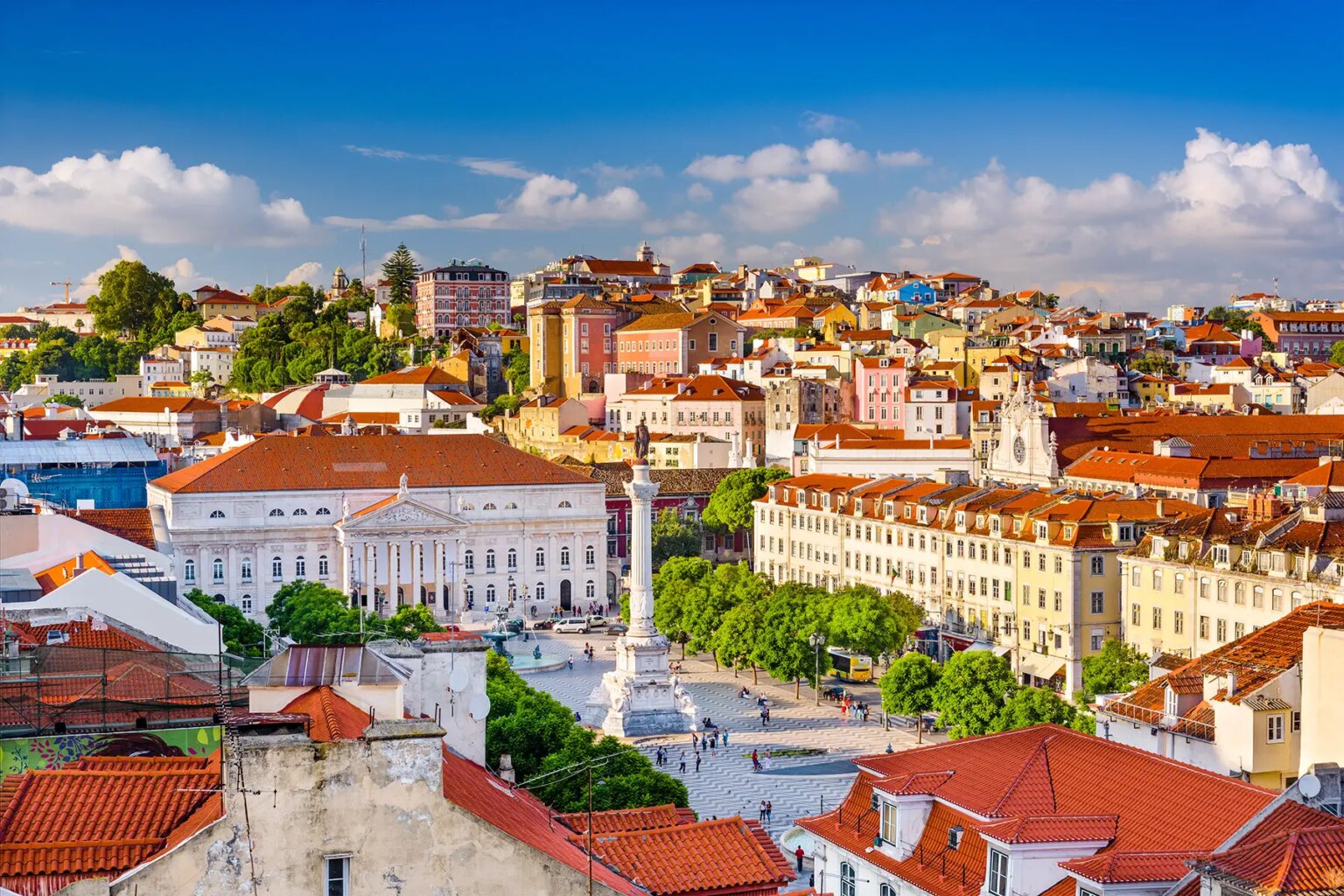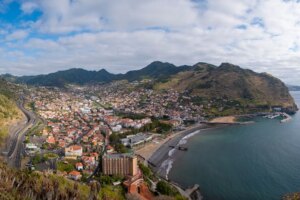Whether you want to live close to Lisbon’s major attractions or enjoy some peace and quiet in the city’s surrounding areas, there are plenty of options to consider. From bustling shopping districts and thriving nightlife hubs to cozy local neighborhoods and scenic coastal towns, there’s somewhere to suit every lifestyle. Moreover, with good public transportation links and plenty of work opportunities, these diverse neighborhoods are within commuting distance of Lisbon city center, meaning you can enjoy the best of both worlds.
Spotahome
Looking for an easy way to find your next home? Spotahome is an on-line property portal operating in Portugal that takes the stress out of renting. With Spotahome's unique online platform, you can find, look around, and book your next rental property without leaving home. Making moving home easier with Spotahome.
Central Lisbon
Baixa
Located right in the heart of Lisbon, Baixa is the most renowned neighborhood in the city. As a result, it is becoming more popular with property investors who are snapping up apartments. The district boasts numerous shops, eateries, and magnificent plazas including Restauradores Square, Praça do Comércio, and Rossio Square. As a result of these attractions, the area can get very busy during the daytime. But if you’re looking to truly immerse yourself in the bustling Lisbon life, then this is a great choice.
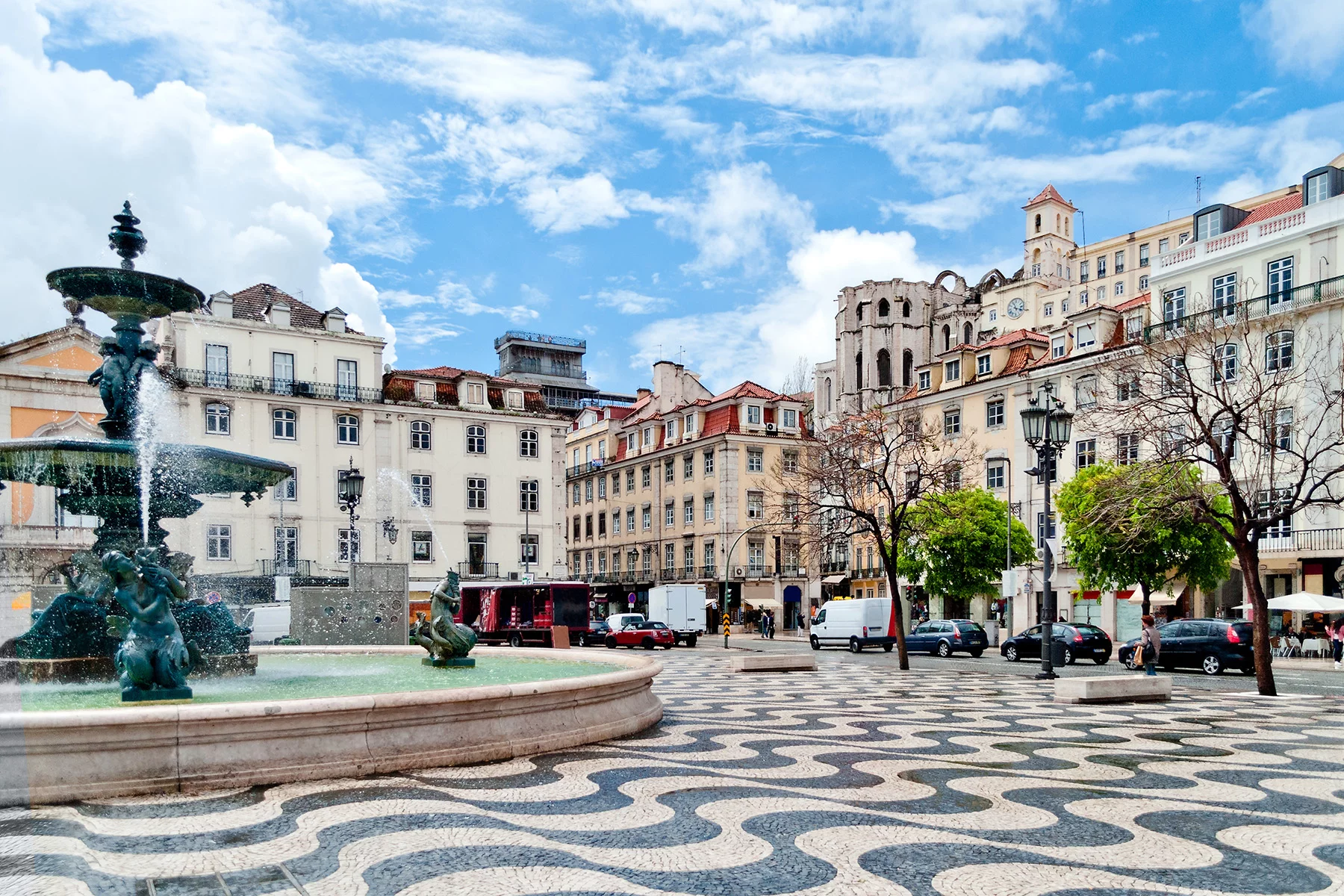
Bairro Alto
This upper-town district is home to some of Lisbon’s best nightlife spots and is, therefore, popular with party-goers and local singles alike. The area is also famous for its picturesque narrow streets, cheap eateries (or tascas), and stunning architecture. It is also where you will find the Elevador da Glória, a vintage wooden tram that links Baixa to Bairro Alto. Once you reach the top, you can enjoy a fantastic panoramic view across the city from Miradouro de São Pedro de Alcântara; a beautiful garden with one of the most iconic observation points in Lisbon. With live music blaring out until the early hours, this lively district might not be the best place to live if you are a light sleeper. Moreover, the prevalence of drinking on the streets can sometimes result in a messy scene the morning after.
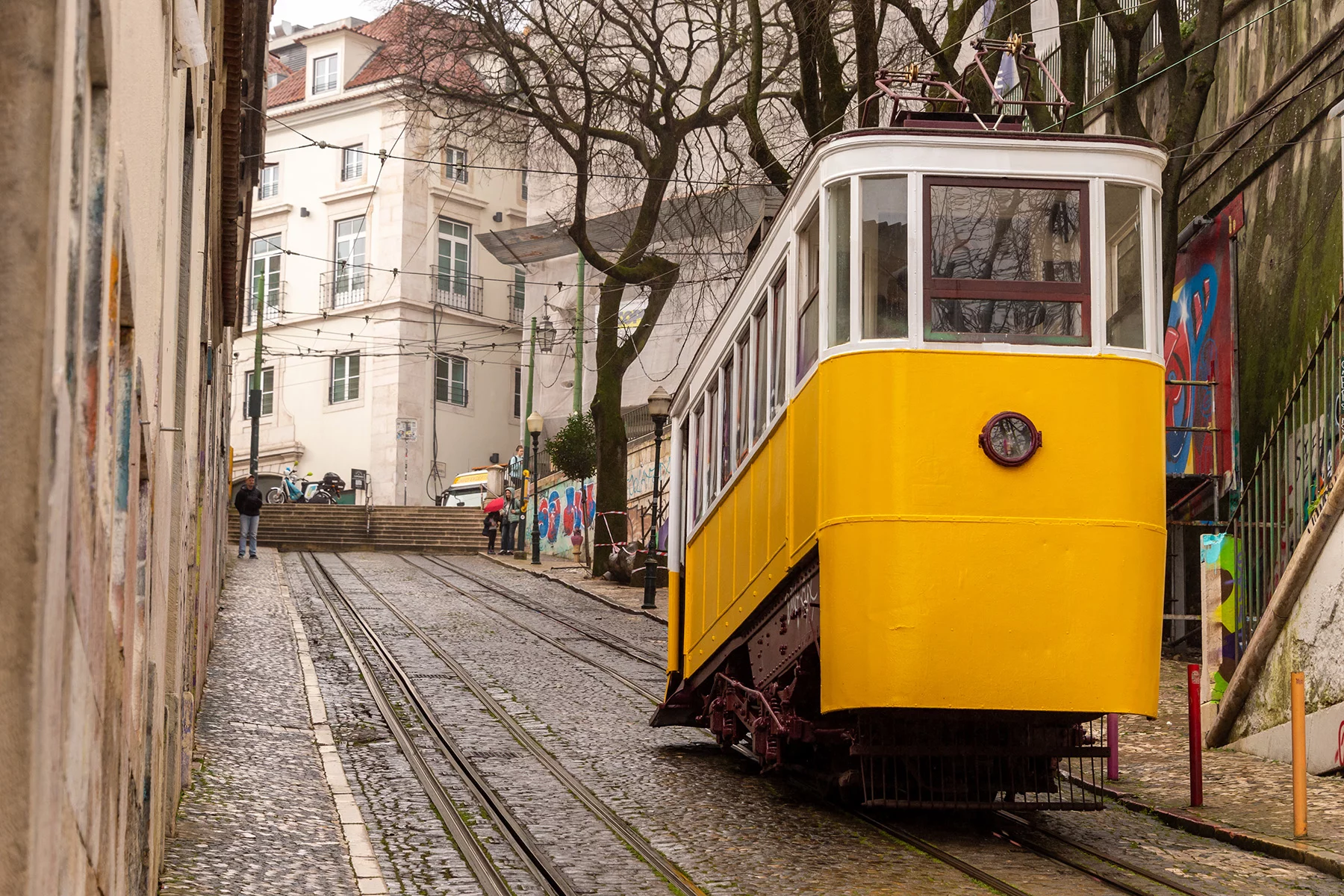
Príncipe Real
Príncipe Real – which literally means Royal Prince – is often hailed as one of the most fashionable neighborhoods in Lisbon – and it’s not hard to see why. It is home to some of the city’s hottest restaurants, bars, art galleries, and alternative shops, making it one of the most sought-after areas to live in. The district’s multicultural population also means that you can enjoy food from every corner of the world when exploring the local restaurant scene. Add to this the convenience of being within walking distance of the city center, and this is an attractive proposition for expats. That said, property can be expensive here; as is the case with most trendy neighborhoods.
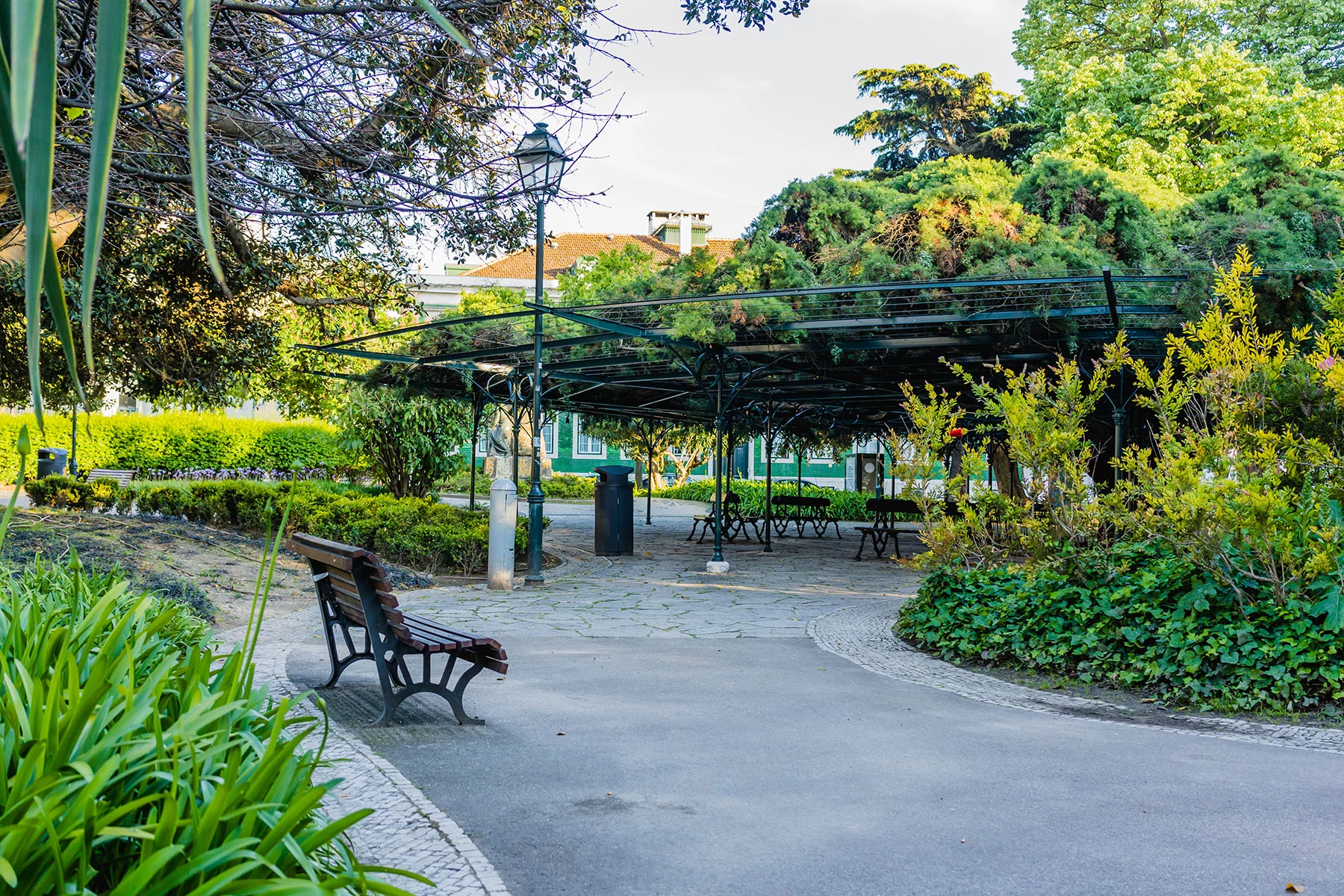
North Lisbon
Avenidas Novas and Alvalade
Moving from the old to the new, the district of Avenidas Novas offers large – and relatively expensive – apartments that are popular among middle and upper-middle-class workers. The neighborhood is also home to several universities; as a result, many students live here, as well as young professionals. The local architecture consists of modern designs, with some rather dull office buildings thrown into the mix. As a result, this might not be the most aesthetically-pleasing area of Lisbon. That said, it does have its appeal. For instance, there are still a few good restaurants to explore, as well as some popular shopping malls. If you want to enjoy an active social life, though, this might not be your top choice.
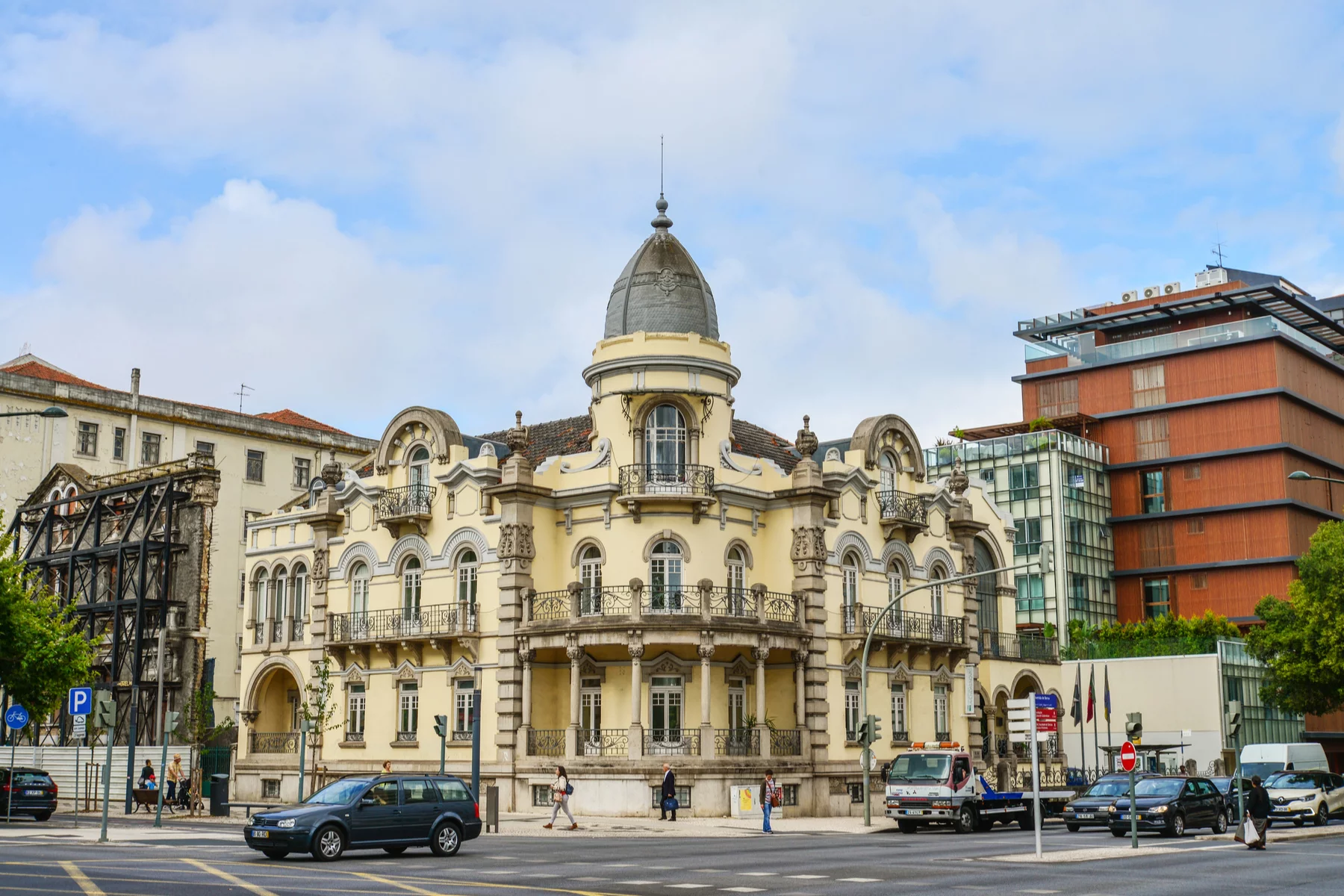
Meanwhile, the green and residential neighborhood of Alvalade is known for its Parisian-style boulevards and charming restaurants and cafés. Just a 20-minute metro ride from the city center, this is an attractive option for families looking to enjoy the quieter life.
Northeast Lisbon
Parque das Nações
A little further from the center, Parque das Nações is a modern, vibrant neighborhood that has flourished since its construction for the 1998 Lisbon World Exposition. The area boasts contemporary architecture and numerous bars, restaurants, and malls. It also offers a variety of open parks and a scenic waterfront. While it has good transport connections to the center, it might not be ideal for expats looking for a warm community vibe.
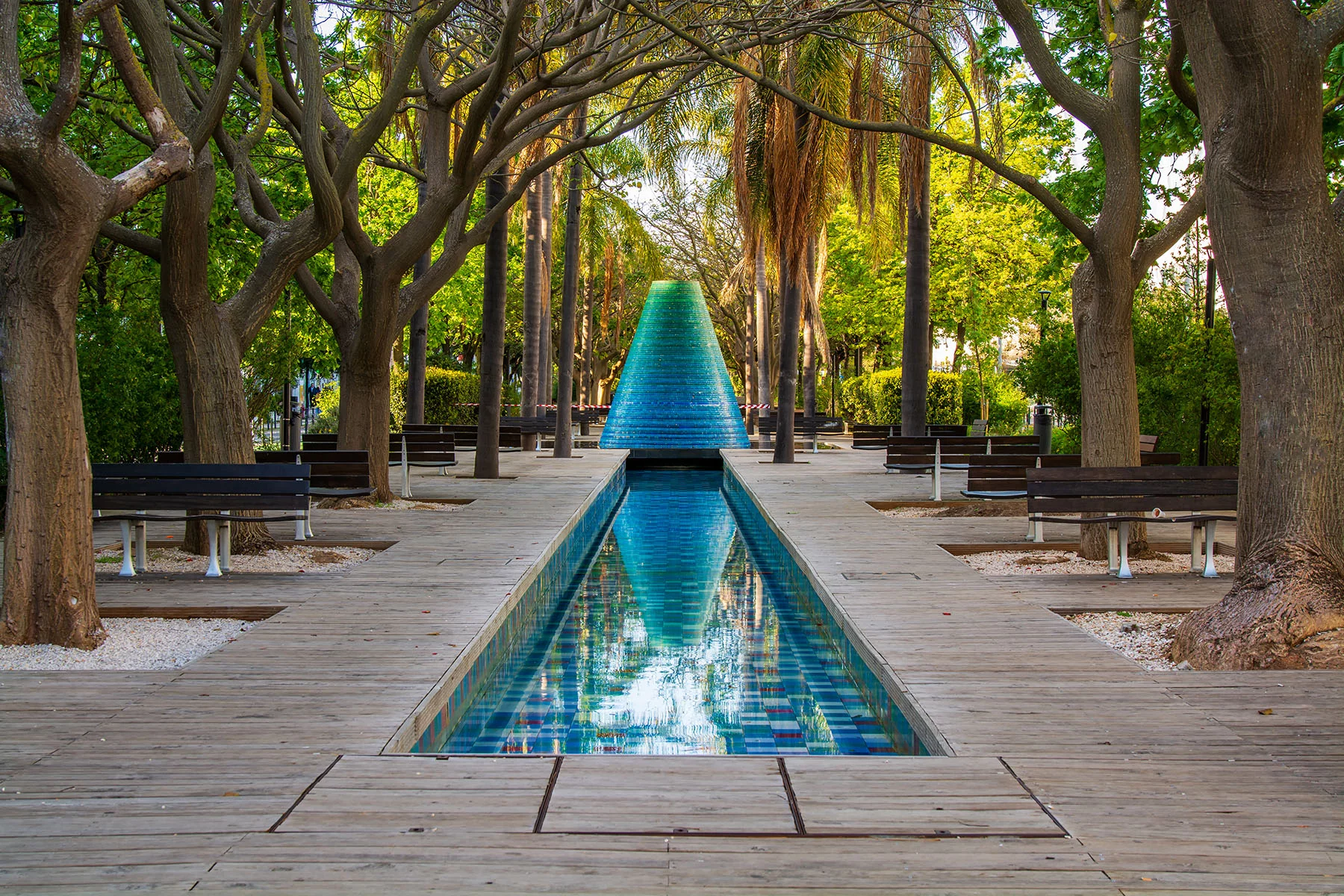
South Lisbon
Alfama and Graça
Home to the famous 11th-century São Jorge Castle, Alfama is Lisbon’s oldest neighborhood. It is characterized by its narrow cobbled streets lined with cafés and shops selling traditional crafts. The district has an eclectic mix of young professionals and larger families who have lived there for generations. Alfama was once associated with poverty and squalor, however, today it has transformed into a fashionable district for locals and expats, alike. If you are considering renting or buying a home here in Lisbon, bear in mind that a car won’t be much use along the narrow winding streets. Moreover, while there are bargains to be had, many buildings in the area are in desperate need of renovation.
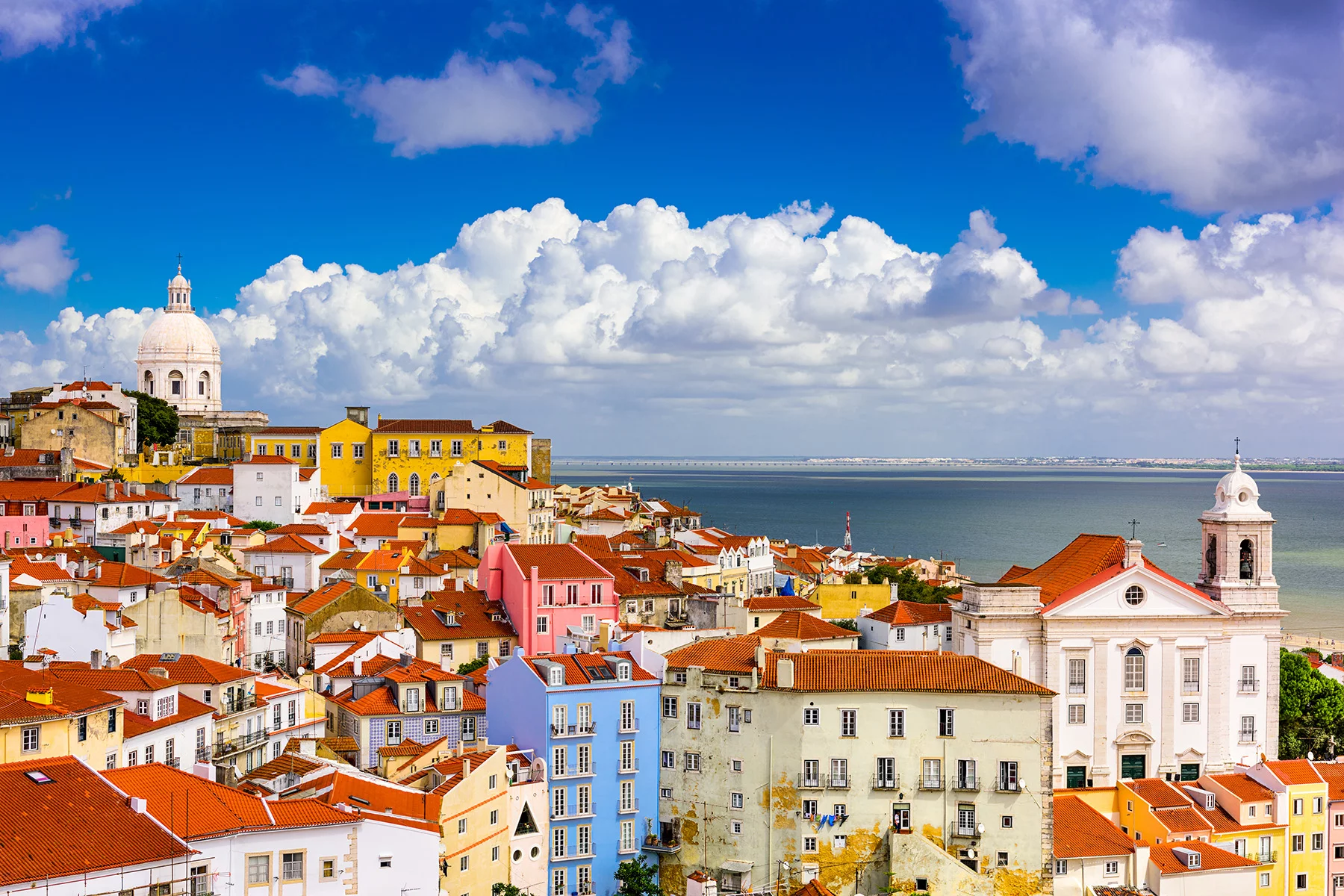
This is also the case in the richly historic district of Graça, which is situated on the opposite side of the castle. While the neighborhood is known for its spectacular views and old-town charm, it lacks parking and green space, which might be an issue if you plan to have your own transport.
West Lisbon
Belém and Restelo
These two neighborhoods might be located close together, but they are vastly different. Belém is a charming district that is home to many of the city’s most iconic tourist attractions, including the 16th-century Torre de Belém. Unlike other areas in Lisbon, it offers green parks and open spaces, as well as stunning views along the Tejo Estuary; making it attractive to expats looking to live outside the center.
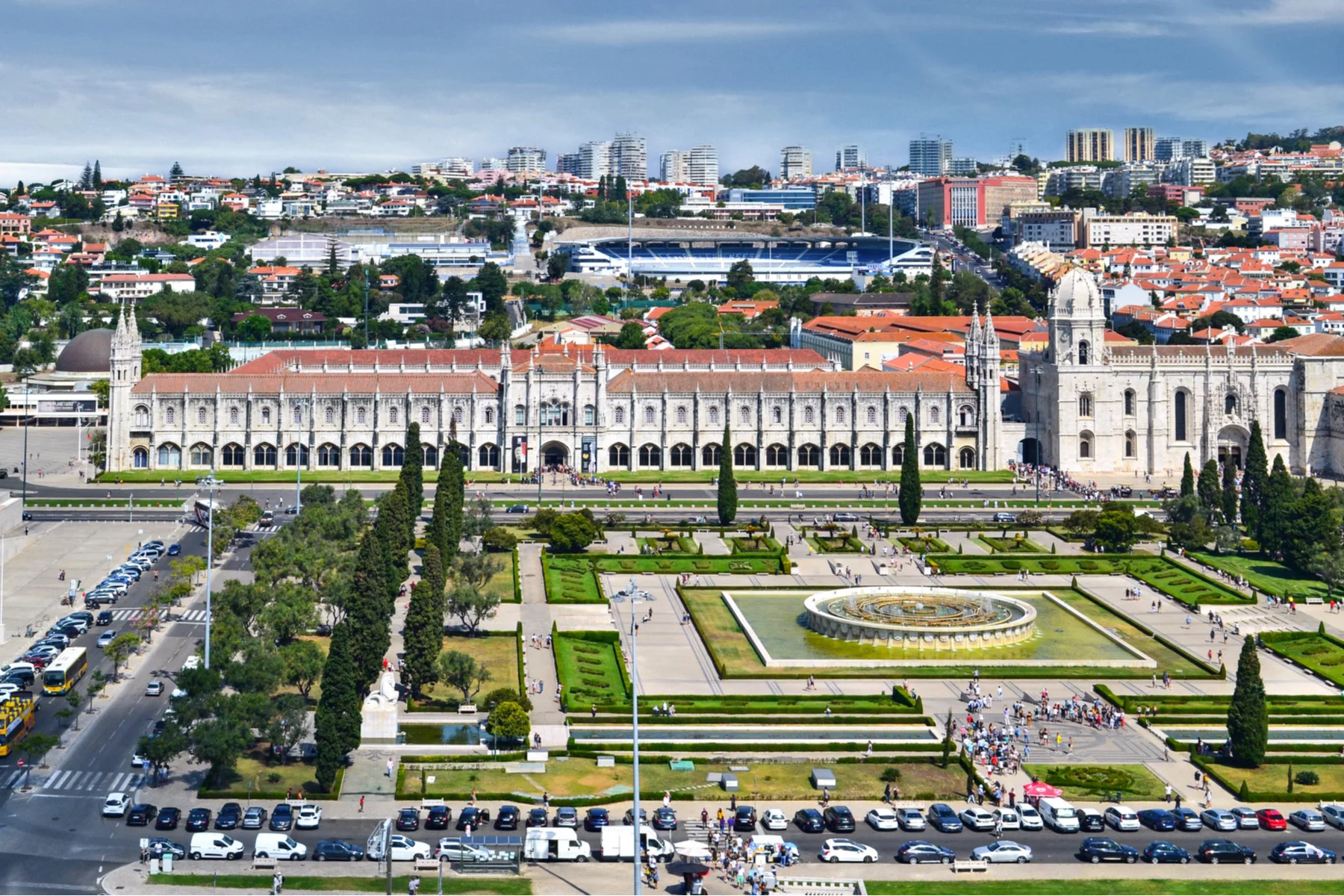
The high-end neighborhood of Restelo, on the other hand, is scattered with luxury villas that surround the oval-shaped football stadium, the Estádio do Restelo. You will have to dig deep into your pockets to live here, however. But if it’s the affluent lifestyle you seek, this could be your dream location.
Campo de Ourique
Designed with a grid pattern, the residential neighborhood of Campo de Ourique is popular among middle-class families who appreciate the old and the new. Stunning 19th-century buildings can be found alongside modern architecture, while traditional shops are juxtaposed with modern brands. There are many restaurants and cafés to explore too, as well as a big food market. Meanwhile, the small central park, Jardim da Parada, attracts people of all ages, in particular families. Although this is a pleasant and peaceful neighborhood to live in, property prices can be on the high side. The lack of metro stations also means that transport into the city center can be a bit of a hassle. That said, it can be accessed by nearby highways and several bus routes.
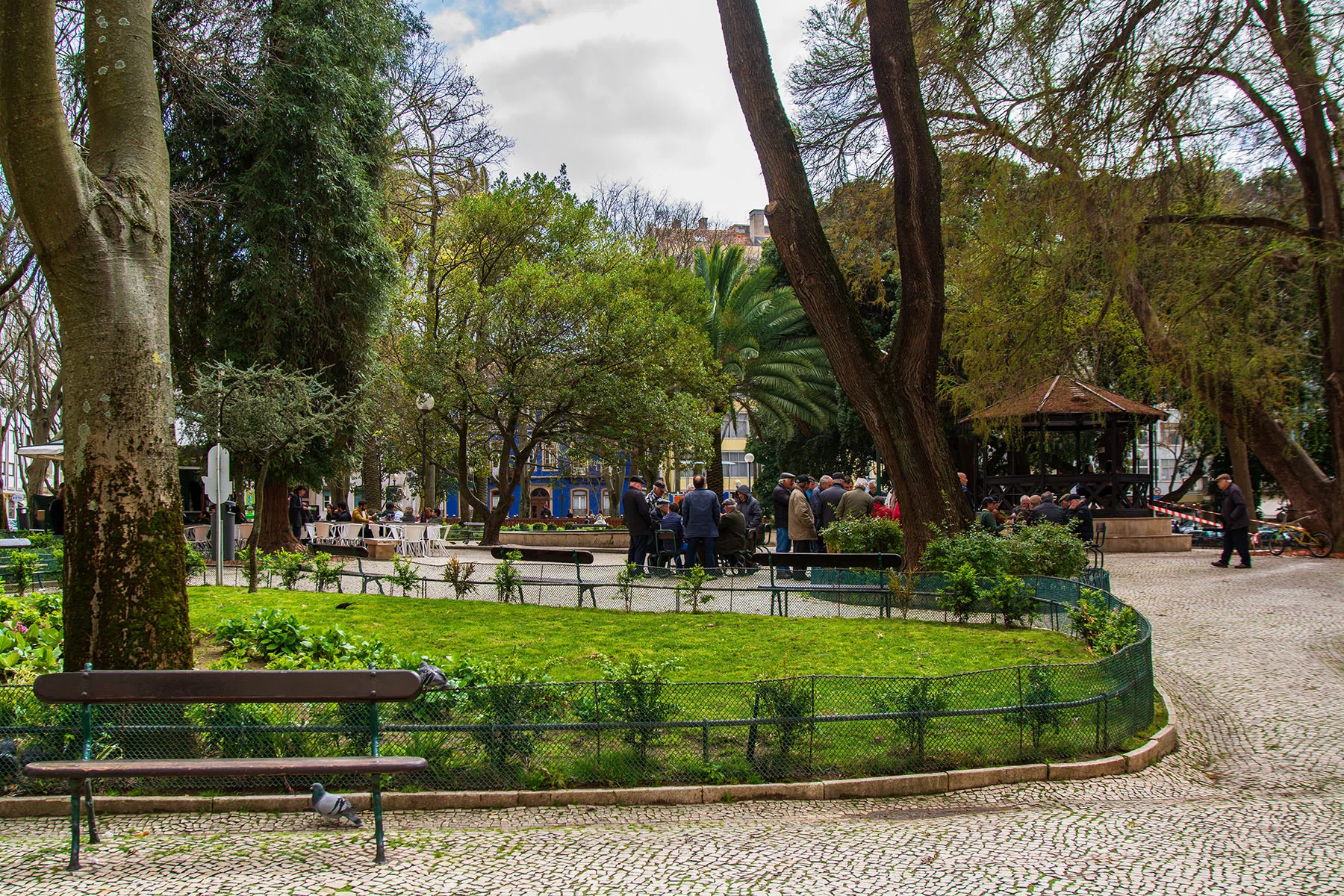
Santos and Lapa
One of Lisbon’s oldest and pricier neighborhoods, Santos is popular with middle-class locals, as well as teenagers and young adults who appreciate the party lifestyle. Many design students can also be found here, as it is home to IADE (Lisbon’s Institute of Visual Arts, Marketing, and Design). The district has a fun and lively atmosphere during the daytime when tourists flock to the old churches and museums. But come nightfall, it transforms into a party center, attracting crowds to the various bars and nightclubs.
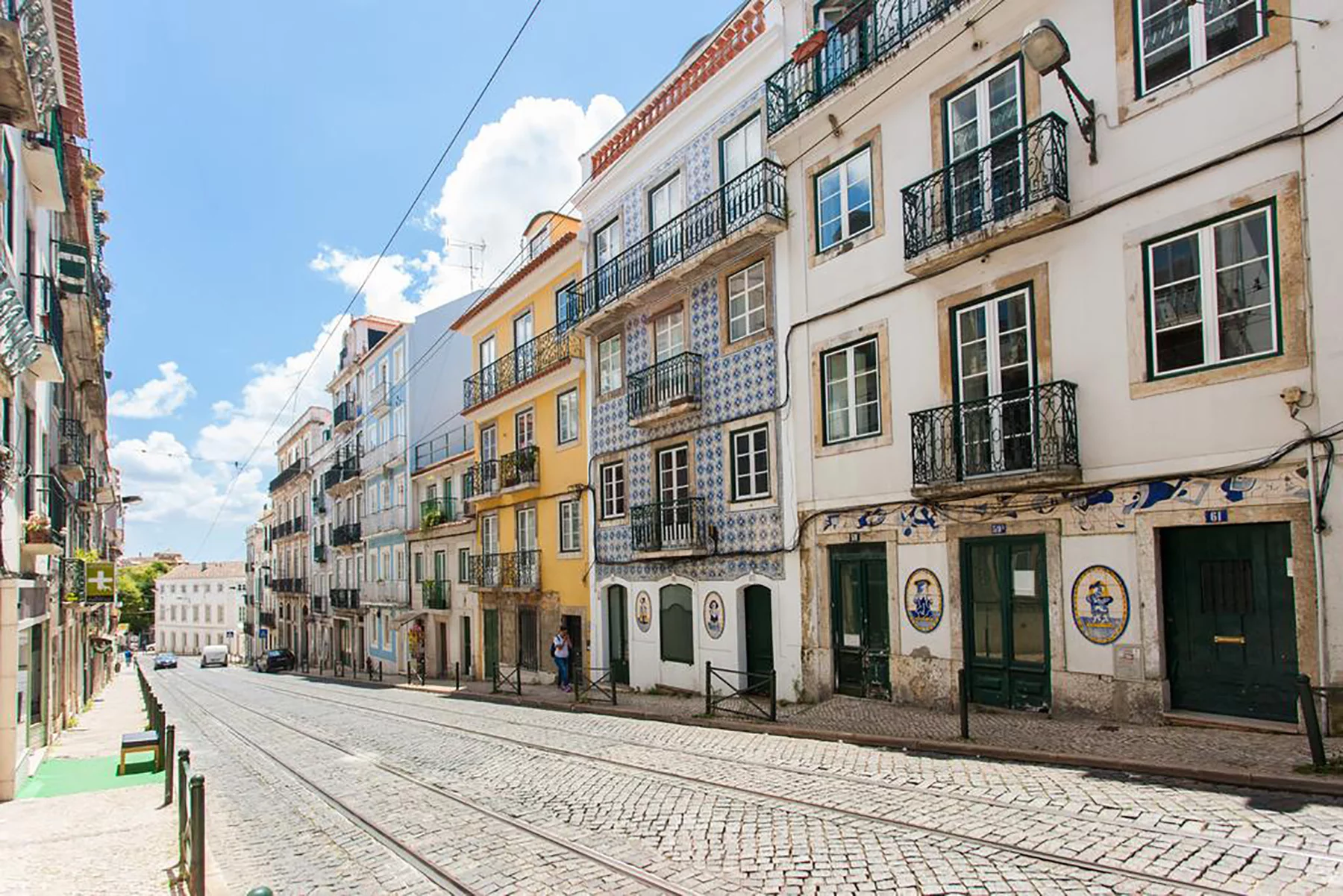
Meanwhile, the hilly neighborhood of Lapa is famed for its grand palaces and embassies. Many wealthy retirees settle here in larger mansions. But while the area offers a peaceful residential atmosphere, the lack of metro stations can make getting around a challenge. Therefore, if you choose to live here, you will need to rely on trams and buses instead.
The surrounding areas of Lisbon
Cascais
If you’re looking to live a little further afield and enjoy life by the sea, then Cascais is a great option. Located 30km west of Lisbon, this coastal resort town is often dubbed the Portuguese Riviera and is famous for its sandy beaches and busy marina. The up-market neighborhood is popular with expats seeking a high quality of life and excellent local schools. While old Cascais boasts cobbled streets and a community atmosphere, the more touristy area offers local shops and restaurants. Cascais is one of the wealthiest areas along the Iberian Peninsula, therefore homes are among the most expensive. However, with central Lisbon just a 30-minute train or bus journey away, it is ideal for city workers wanting more for their money.
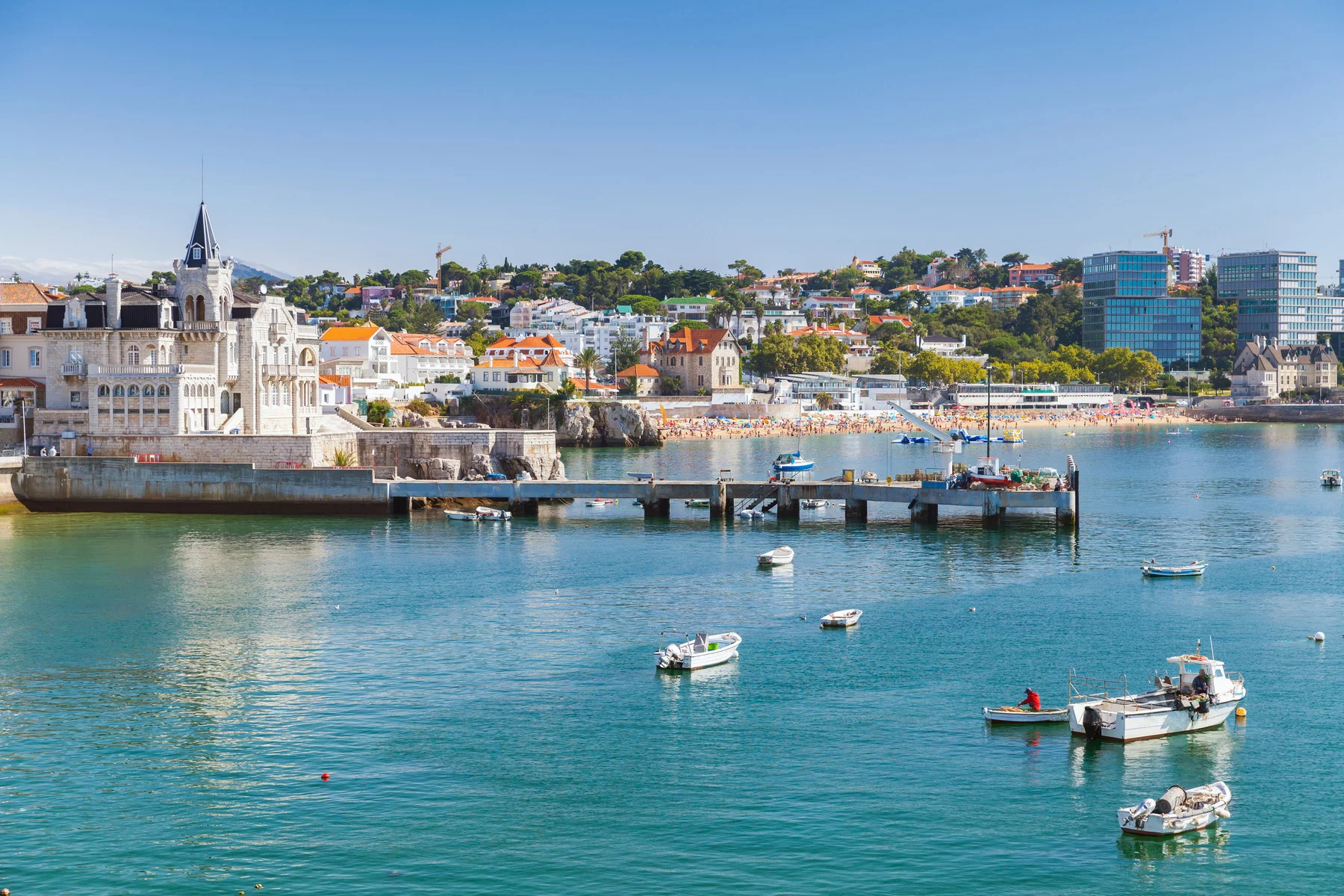
Birre
Situated just 3km north of Cascais, and a 30-minute drive from Lisbon, Birre is a popular area for expats. There are plenty of find high-quality apartments in Costa da Guia and Monte Estoril. However, due to their large size and close proximity to the seaside, they can be expensive. But if you have a generous budget, this could be a dreamy location to call home.
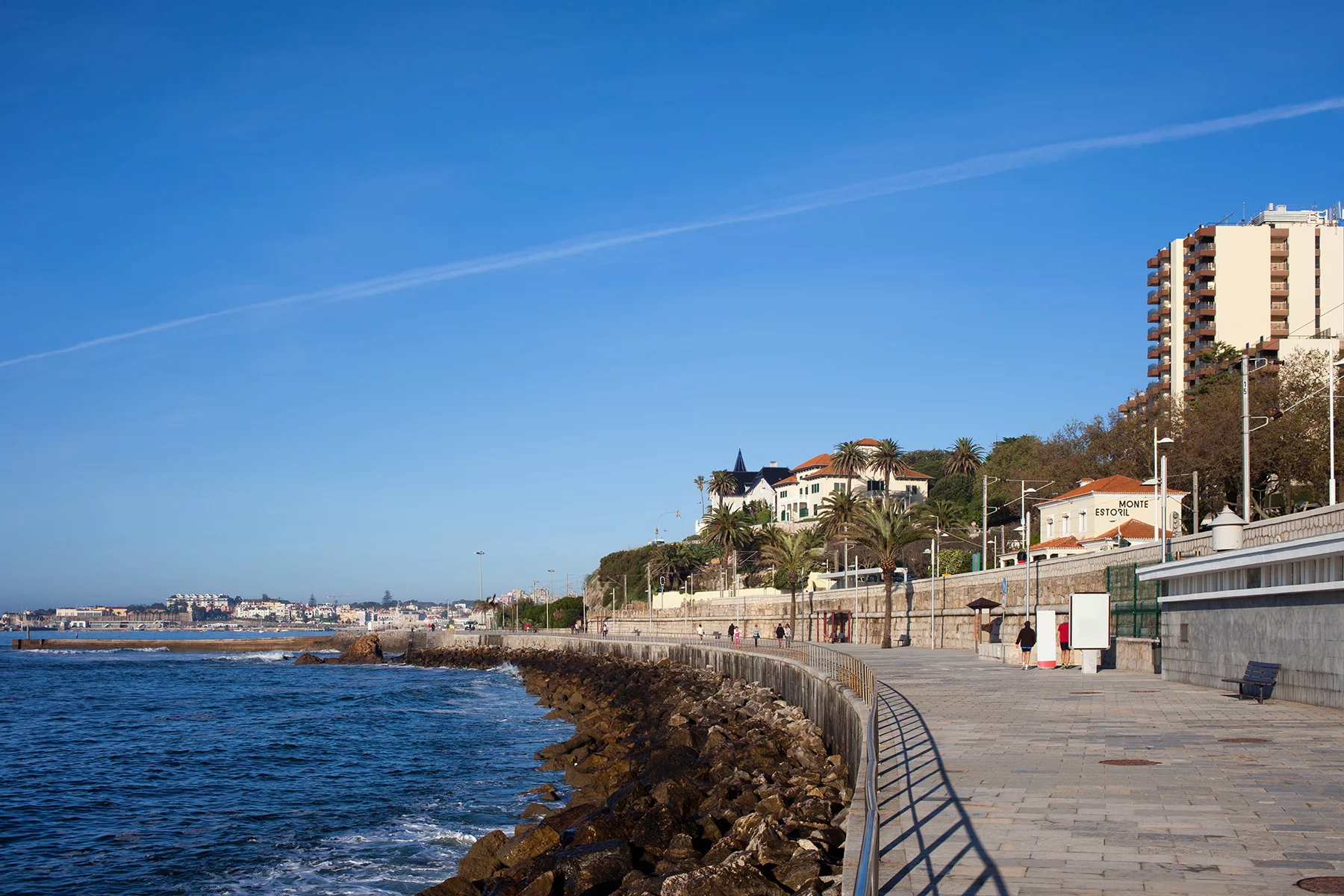
Sintra
The charming Portuguese town of Sintra is only a 30-minute train journey from Lisbon. The pleasant mountainside settlement is also a UNESCO World Heritage site and offers a great deal of tranquillity. Here, you will find a range of independent shops and restaurants, as well as whimsical palaces, extravagant villas, and even castle ruins. The breathtaking natural scenery and historical buildings make this a popular day trip for tourists in Lisbon. But while the cost of property is a lot cheaper than the city center, you can still expect to pay a hefty sum for a renovated place in this fairy tale town.
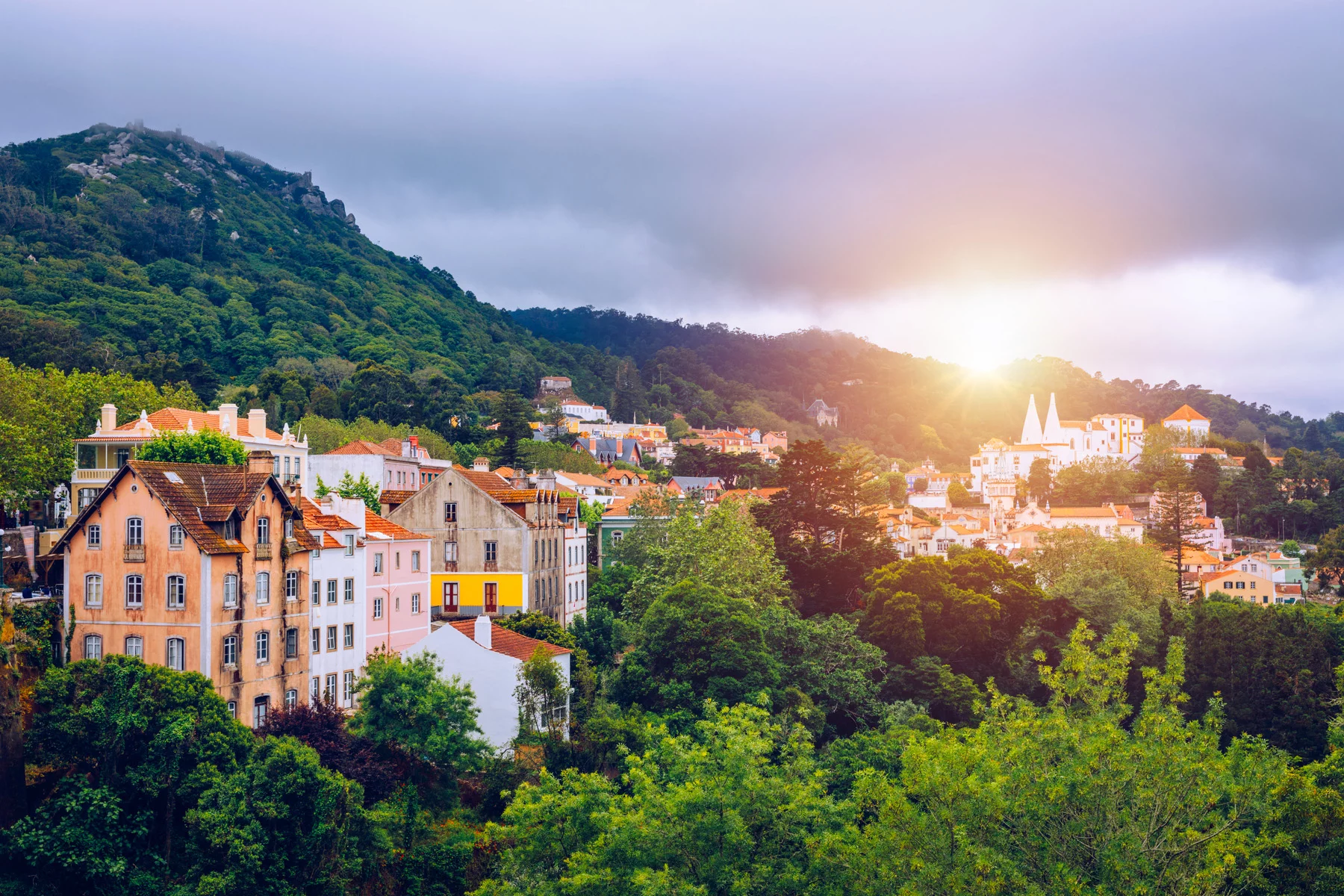
Other towns such as Carcavelos, Oeiras, and Paço de Arcos are also popular among expats and offer convenient transport links into the city. However, if you are looking to move even further afield, you can find more options in our guide on where to live in Portugal.
Property websites
Internationals moving to Lisbon should first decide whether to rent or buy. Those staying in the city for a short period can find a fixed-term, holiday, or furnished rental on one of the following portals:
- Airbnb (for short-term and holiday stays)
- HousingAnywhere
- Spotahome
Meanwhile, if you’re staying for longer, there are plenty of platforms listing rentals and properties to purchase. Useful sites include:
Expats who intend to settle in Lisbon, or in its surroundings, such as charming Cascais, elegant Monte Estoril, or the enchanting Sintra, may be interested in buying a home. Although the above websites can provide a good starting point, it’s worth enlisting the help of a professional who can guide you through the process. For example, Kuabit is an exclusive buyer’s agent with years of experience in assisting internationals with their Portuguese property purchases.
